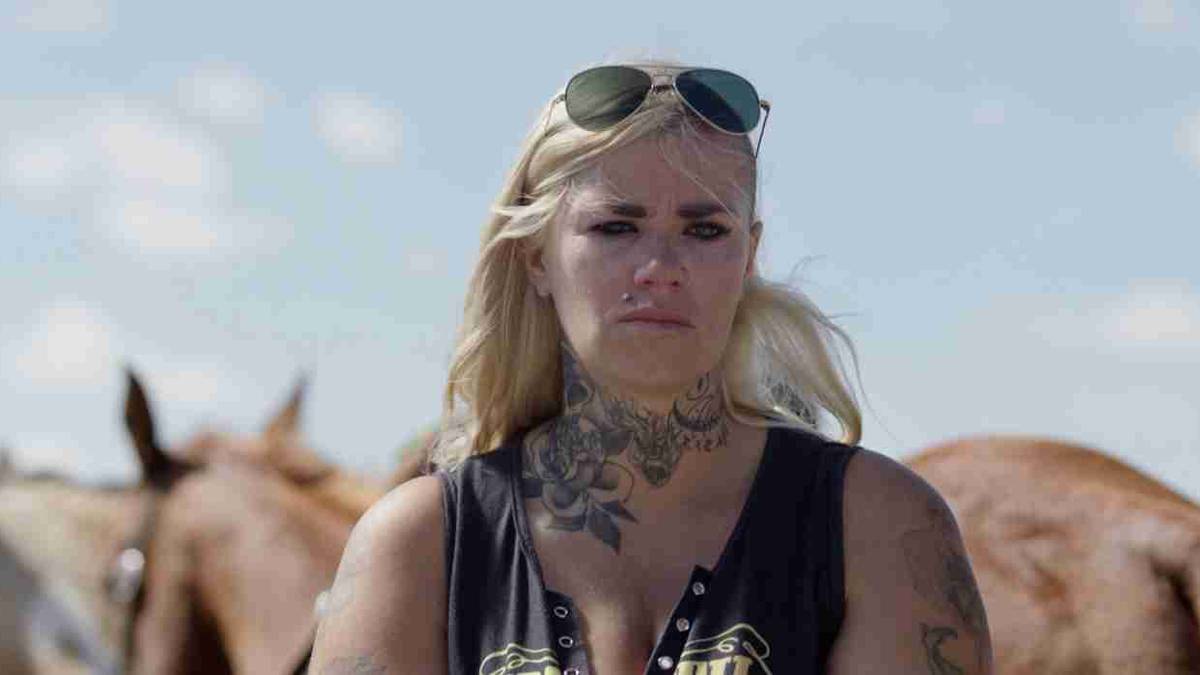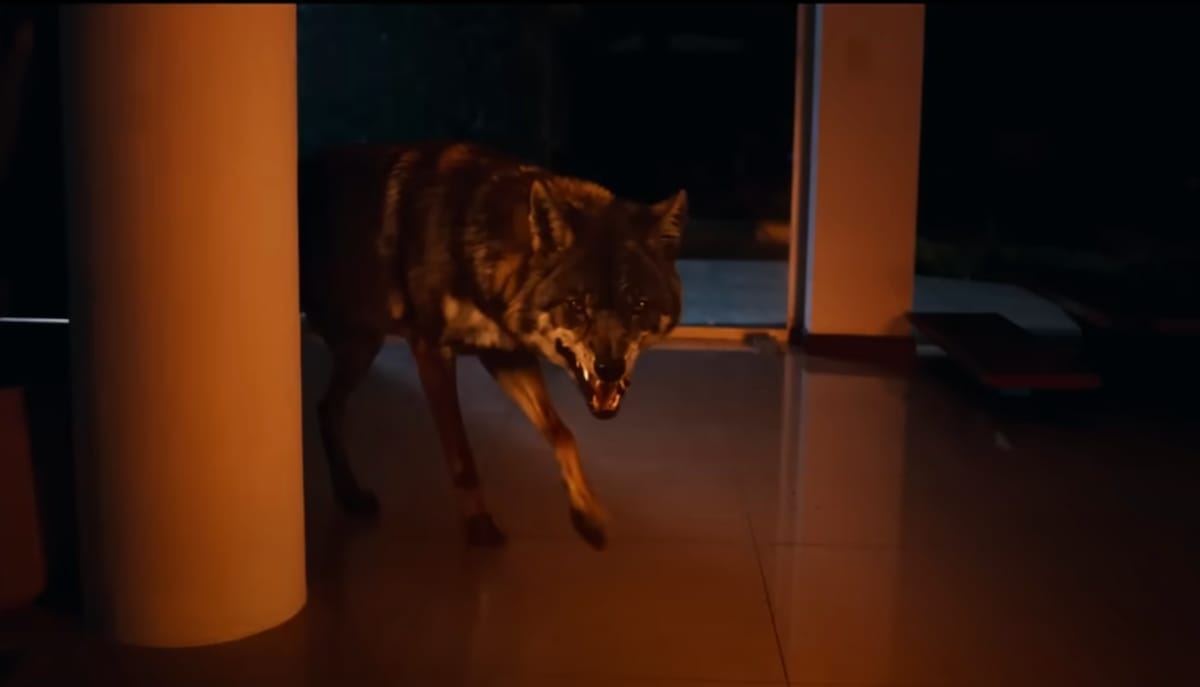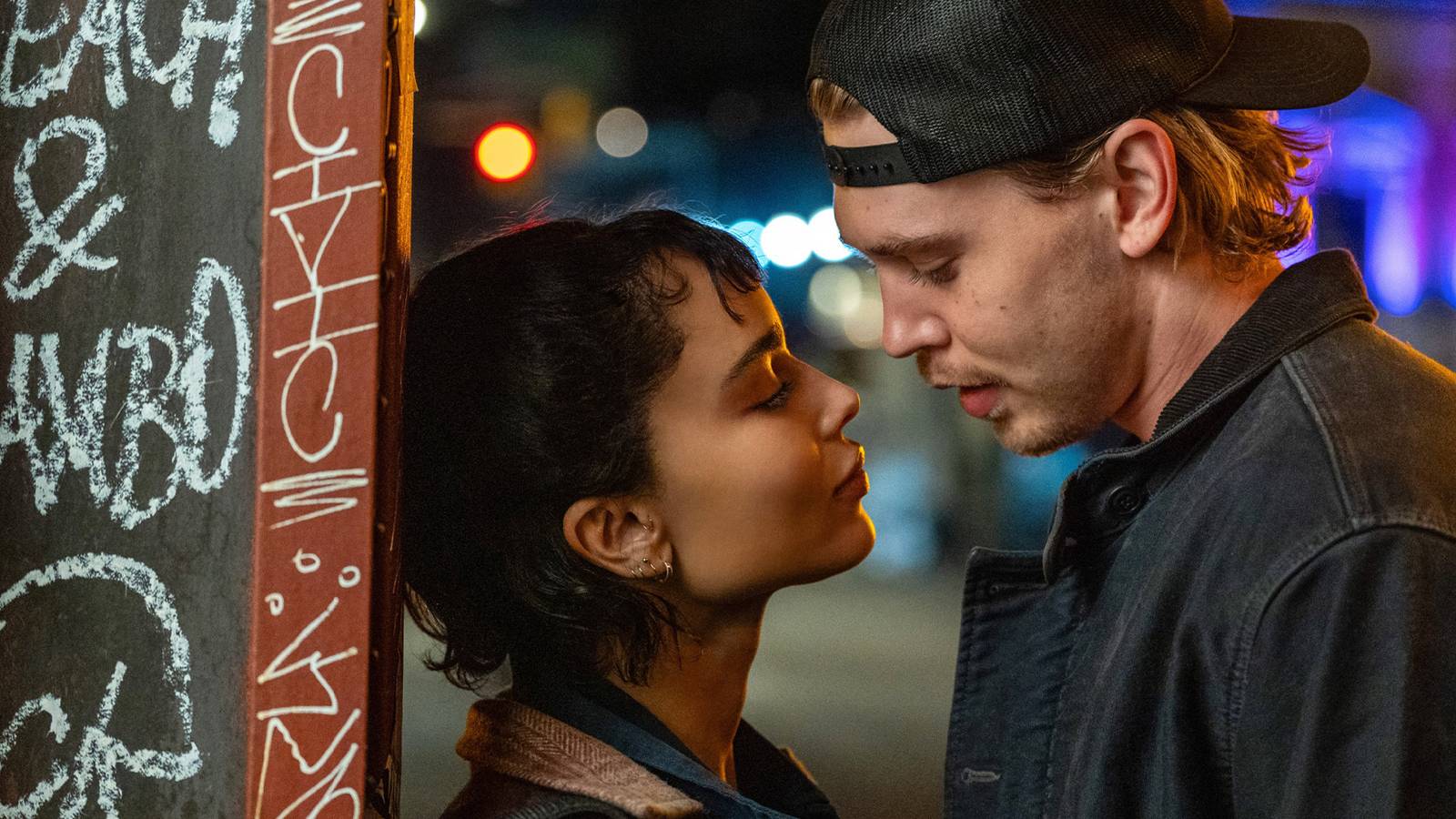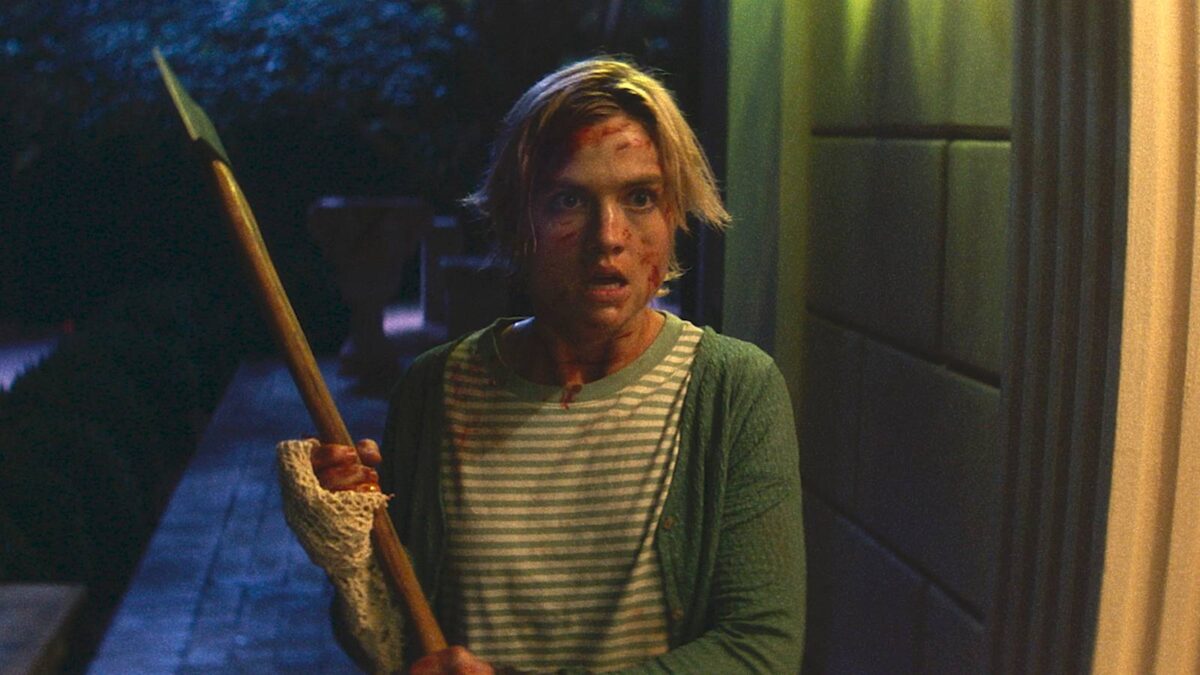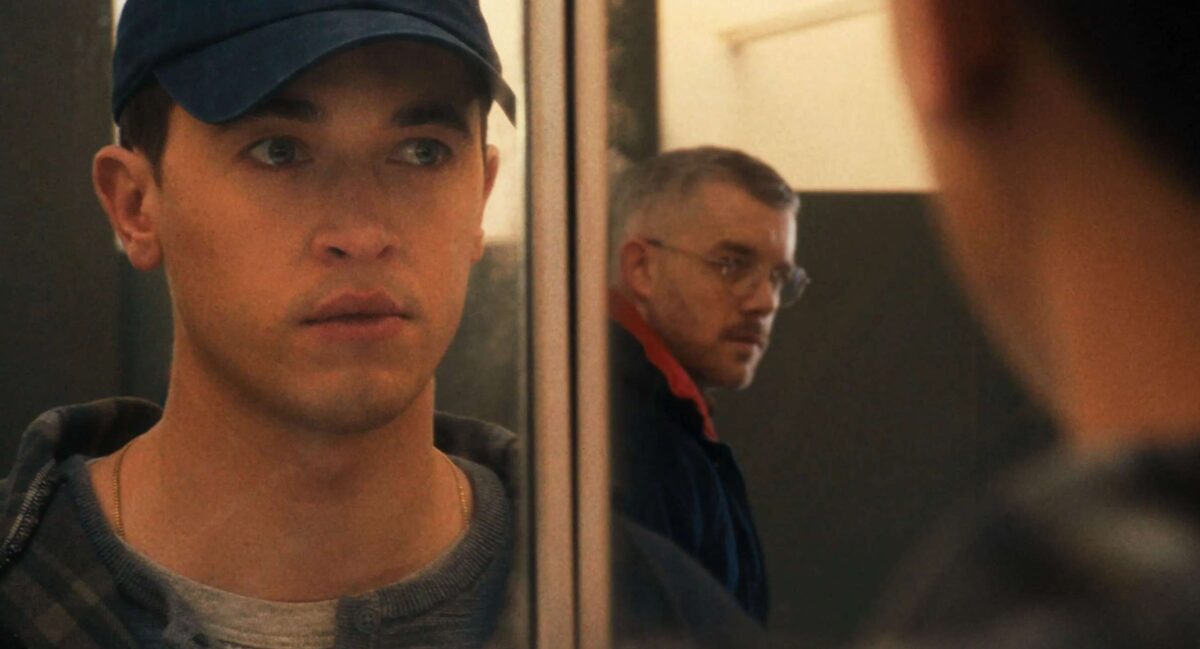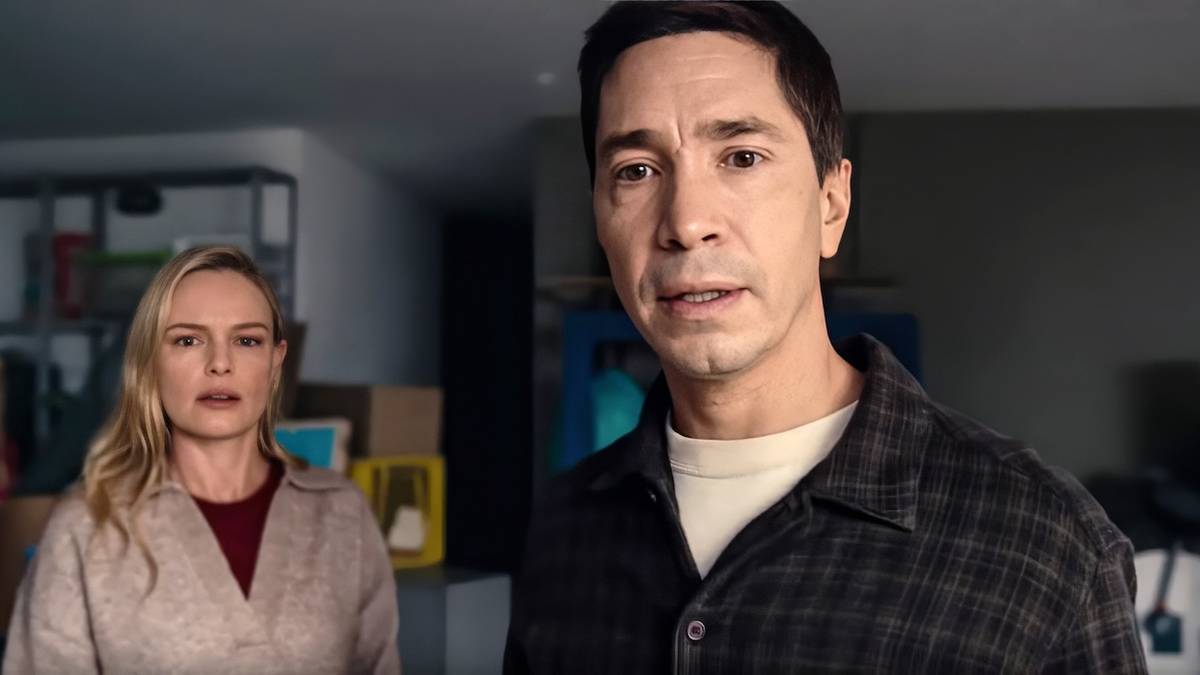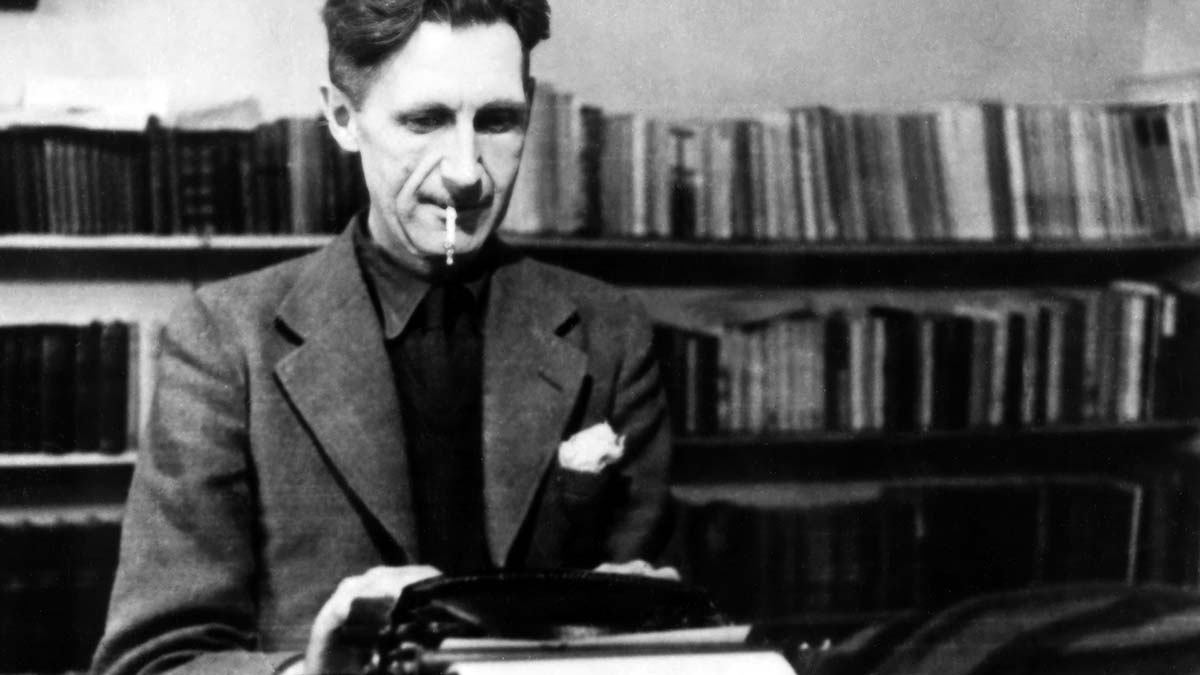
Scott Kennedy Hamilton & Neil deGrasse Tyson Discuss Shot in the Arm and Vaccine Skeptics
Nov 2, 2023
Anti-vaxxers, as they’re often called, began sprouting up in the late ’90s after one factually erroneous paper — released by an alleged slimy grifter named Andrew Wakefield — made vague connections between vaccines and autism. As the ‘truthiness’ era of George W. Bush transformed into the post-truth era of the late Obama and then Trump administrations, the idea of ‘vaccine skepticism’ only grew more. Shot in the Arm is a powerful new documentary about the dangers of anti-scientific messaging, and the ramifications of this among society at large.
It’s a potent message that actually began before the COVID pandemic, when Oscar-nominated filmmaker Scott Hamilton Kennedy decided to make a film about a then-growing measles outbreak and the anti-vaxxers with (perhaps more than) figurative blood on their hands like Robert F. Kennedy Jr., who was interviewed here prior to his current presidential run. But as the world shut down and scientists everywhere raced for a vaccine — and skeptics everywhere demanded their maskless freedom — Scott Hamilton Kennedy found his small documentary intersecting with much bigger events. The result is an excellent film about the people fighting for vaccines, fighting against vaccines, and fighting to survive without them.
Neil deGrasse Tyson, who narrated Kennedy’s Oscar-nominated film Food Evolution, served as a script consultant and executive producer on Shot in the Arm, and joined Kennedy in speaking to MovieWeb about the film. You can find our very enjoyable video interview above.
Scott Hamilton Kennedy Gets a Shot in the Arm
Black Valley Films
MovieWeb: So if I understand correctly, this film began as an investigation into measles, but it turned into something else entirely because of COVID-19. What was the original impetus for the film, when did Neil get involved, and how did it transform?
Scott Hamilton Kennedy: So in 2019, we were seeing record-breaking measles outbreaks across the country and around the world. There was a state of emergency in the Orthodox Jewish community in New York City, a state of emergency in Washington State, outbreaks around Europe. I thought, “What’s going on here?”
Neil deGrasse Tyson: And the outbreaks were geographically localized. So that’s an important fact here.
Scott Hamilton Kennedy: It wasn’t random. They were places where disinformation had caused people to stop getting vaccinated. And I looked into it a little bit. I did a little bit of research, it wasn’t hard to find that measles was almost eliminated in 2000. It was almost like, why is this happening?
And I saw an interview with Dr. Paul Offit, and he put it very simply that there are people out there fomenting fear and disinformation and causing parents to not get their children vaccinated. And I reached out to Dr. Offit, and he was very generous with his time and introducing other people in public health, like Dr. Fauci.
Scott Hamilton Kennedy: But I also wanted to tell the other side of the story with the people that are fomenting this disinformation. So we followed some of the top people on the anti-vaccine side, Dr. Andrew Wakefield, Del Bigtree, and of course now at the top of the pyramid, Robert Kennedy Jr. And we thought we had a pretty interesting film, in that it was fascinating, it was heartbreaking, it’s complicated. And then COVID happened, and obviously it went to this other level and it became more of a personal film as well, the ‘all of us’ that my family I hope represented humbly, all of this that we went through together. And yeah, that’s how it came together.
Scott Hamilton Kennedy: And then in terms of Neil’s participation, we met on my previous film, Food Evolution. And while he didn’t get technically involved with Shot in the Arm until later in the editing process, I’ve been grateful that he’s communicated with me a lot. So I’m always leaning on him for what’s the best information and how to be a better communicator. So he’s always in my thoughts, and I was very honored when he decided to come on board and help me as both the scripts consultant and an executive producer.
Neil deGrasse Tyson’s on the Phone
20th Television
Neil deGrasse Tyson: Because I had already had the prior relationship with Scott on Food Evolution, just as a friend he asked me to look over his latest project. I think at the time it was like a two-hour edit, it was finally trimmed down to 90 minutes. He knows that I have experience in the world of communication. While I count myself among the ranks of educators, a pure educator might be just someone who teaches regularly, but that’s not enough to come over, to pour over the script and say, this is missing a point, that could be more potent if it said that word, for example, in the narration, or in his choice of video clips.
Neil deGrasse Tyson: So I was offering him continuous advice and commentary along the way, and no good deed goes unpunished — he promoted me to executive producer. And I don’t know if I’ll ever agree to that again [laughs].
Scott Hamilton Kennedy: In my films only.
Neil deGrasse Tyson: I’m on the horn five times a day with this guy [laughs]. And it’s a huge, important task to help a film get noticed, make sure it hits all the right channels, it gets recognized by the right people, the right media outlets. And so I am there as one of his many engines to help build the public visibility of this project. And I’m using not my knowledge as an astrophysicist, but my knowledge as a scientist, how science works, the methods and tools that get invoked, and how can he best tell that story? Because he’s the storyteller in this.
Related: The 25 Greatest Documentary Films of All Time, Ranked
Counteracting Anti-Vax Narratives with Critical Thinking
Black Valley Films
MW: I recall seeing you on an episode of Real Time with Bill Maher. Maher has kind of turned into that ‘Old Man Yells at Cloud’ meme recently, but you did a great job explaining and defending the science of vaccines, so it makes perfect sense that you’d contribute to Shot in the Arm. But trying to convince people of this knowledge seems like an epistemological nightmare.
Neil deGrasse Tyson: Yeah, it is. We learn this in the field, but we also know from psychological research that if you just go to hit someone on the head, they dig their heels in more strongly. If you hit them on the head with the truth and they’re deeply embedded, it hardly ever converts them — and I even hate to use the word ‘convert’ — it hardly ever convinces them, and you have to be more tactical about it. Dare I say, even more subtle. I think you have to work your conversation in such a way that they arrive at the conclusion on their own, rather than having to just force a pivot. So you’ve got to get deep into their brain wiring, deep into their pathways of thought and reason. And once you have access to that, you have some chance of having them see where they have previously been wrong.
But my real answer to you is, this should have been taught in elementary school, in high school, in college, where science is a means of querying nature, with methods and tools exquisitely tuned to establish what is objectively true in the world. And by the same token, it can establish what is objectively false. And that is the power of science, like no other enterprise humans have ever engaged.
MW: Yeah, there’s a real paucity of critical thinking in all fields that dates back to school. I remember we had an actual Critical Thinking class in high school 20 years ago, but three days of the week, all we did were crossword puzzles.
Scott Hamilton Kennedy: I imagine that’s the way it is, because I feel like the actual process of critical thinking is lacking entirely.
Neil deGrasse Tyson: What I would say is, that’s a start, requiring critical thinking, notwithstanding your crossword puzzle training. That’s a start. But ideally, this critical thinking would be infused into every subject that you’re taught in school, so it’s not thought of as a separate way of looking at the world — it is fundamental to every way of looking at the world. Even in the liberal arts. If you read a historical account of some event, you can say, well, ‘Who wrote this? Oh, it was the people who won the war who wrote this account of that battle. Is there any other account? Okay, let me see all the information here. What are the sources and where are they coming from?’ And so that’s critical thinking. And you have to end this notion of, ‘Well, I’m a skeptic.’ Well, there are people who are skeptical of everything, even when the evidence shows that’s no longer necessary.
So people have taken this “I want to be a skeptic” to an extreme, where it actually subtracts from their access to the truth rather than add to it.
Scott Hamilton Kennedy: And they’re actually cynical. They’re not really skeptical anymore. They’re cynical.
A Vaccine Documentary Really About the Social Contract
Black Valley Films
MW: I was interested in the absence of lengthy expositional scenes getting into the technical details of the science here. You take a more people-first approach.
Scott Hamilton Kennedy: Yeah, obviously we had to have some sections explaining the history of vaccines, and others to make a few very clear scientific points. But thank you for noticing that. That wasn’t our job in this story. This story was a human story. This story at its core is not even a COVID story. It’s maybe a COVID story as a metaphor to go to a deeper conversation about our human condition.
Neil deGrasse Tyson: I’d kind of take credit for one of the graphs in it [laughs]. There are graphs and storytelling describing that the M.M.R. vaccine does not contribute to autism. And I said, Scott, we don’t need to just have a person with authority declare this. There’s data. Let’s find the data. And I think one of the most potent graphs, it goes quickly but it’s there, where it shows there are some countries that started reducing the M.M.R. vaccine, yet the autism rates were unaffected by it, in fact, they even went up. And so you see these two graphs crossing, so that way it’s information that’s not simply delivered by the authority of talking heads.
Related: Best Movies About Pandemics and Viruses, Ranked
Scott Hamilton Kennedy: But to get to the human side of the story — some people looks at this film and they go, ‘Of course it’s a COVID movie.’ And it is a COVID movie, and it’s a measles movie, and it’s a vaccine movie, and it’s anti-vaxx movie.
But the subtext of it is, it’s a human story about how fragile our human condition is and how easy it is for any of us to take the route of selfishness, take the route of misinformation, take the route of believing our tribes and believing things that are verifiably not true if we want to believe them. And how much that disinformation and selfishness and lack of humility has led to really an attack on the foundations of our democracy, including the social contract.
Robert F. Kennedy, Donald Trump, and Other Symptoms of Our Disease
MW: Kind of a fun but horrifying question — who would you fear most as President of the United States, Donald Trump or Robert F. Kennedy?
Scott Hamilton Kennedy: Oh, God, that’s an awful question. Holy cow. I would still say Donald Trump. As much as I dislike and distrust Robert Kennedy Jr., Donald Trump has used his superpowers for evil in a more effective way. But it’s a terrible, terrible, terrible, awful thing to face. I choose neither. But yeah, Donald Trump is more dangerous because he’s also gotten the following, almost half of our country believing that he is a force of good and should be followed on this […] It’s like he’s the greatest con artist that our presidencies have ever seen.
Neil deGrasse Tyson: I don’t talk much about leaders in a democracy, only because there is an electorate that places them into power. We think of them as leaders, but at the end of the day, at some level, they’re our followers, right? It’s ‘We the People.’
So if there is a faction of the demographic that supports any one politician or another, and that politician has either anti-scientific views or views that are not in the interest of an informed democracy, then as an educator, I don’t think about those politicians. I think about the people voting for them. And so my task is to at least ensure that the voters make decisions that are scientifically informed in an era where science, where the survival of civilization pivots on informed decisions that you make as a voter, and that the person you put into office makes as a politician.
Neil deGrasse Tyson: So I don’t have views of politicians the way I have views of the public, so I will turn to the public and try to educate them. So at the end of the day, it would not be possible for someone to rise to power who had an anti-scientific platform, because your electorate doesn’t have an anti-scientific platform. So that’s my dream state of the future of civilization.
Shot in the Arm will launch its theatrical release in New York City at the iconic Angelika Film Center with a preview screening and Q&A tonight, November 2nd, before fully releasing on November 3rd. Then it will be released in Los Angeles at the Laemmle Cinemas on November 17th before expanding to other markets across North America. You can find more information at the Shot in the Arm website and can watch the trailer below:
Publisher: Source link
Erotic Horror Is Long On Innuendo, Short On Climax As It Fails To Deliver On A Promising Premise
Picture this: you splurge on a stunning estate on AirBnB for a romantic weekend with your long-time partner, only for another couple to show up having done the same, on a different app. With the hosts not responding to messages…
Oct 8, 2025
Desire, Duty, and Deception Collide
Carmen Emmi’s Plainclothes is an evocative, bruising romantic thriller that takes place in the shadowy underbelly of 1990s New York, where personal identity collides with institutional control. More than just a story about police work, the film is a taut…
Oct 8, 2025
Real-Life Couple Justin Long and Kate Bosworth Have Tons of Fun in a Creature Feature That Plays It Too Safe
In 2022, Justin Long and Kate Bosworth teamed up for the horror comedy House of Darkness. A year later, the actors got married and are now parents, so it's fun to see them working together again for another outing in…
Oct 6, 2025
Raoul Peck’s Everything Bagel Documentary Puts Too Much In the Author’s Mouth [TIFF]
Everyone has their own George Orwell and tends to think everyone else gets him wrong. As such, making a sprawling quasi-biographical documentary like “Orwell: 2+2=5” is a brave effort bound to exasperate people across the political spectrum. Even so, Raoul…
Oct 6, 2025
